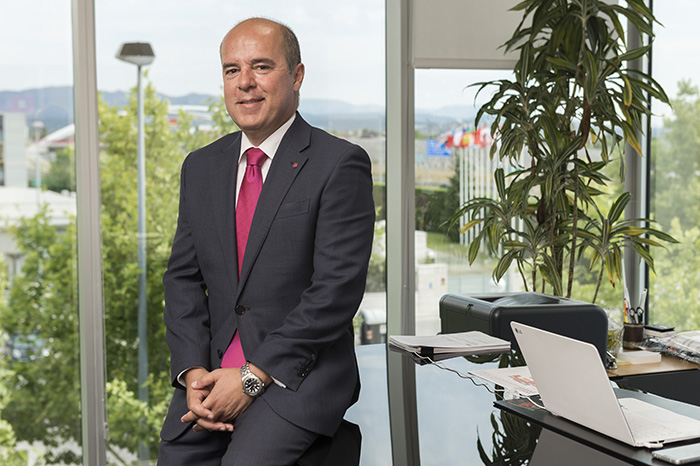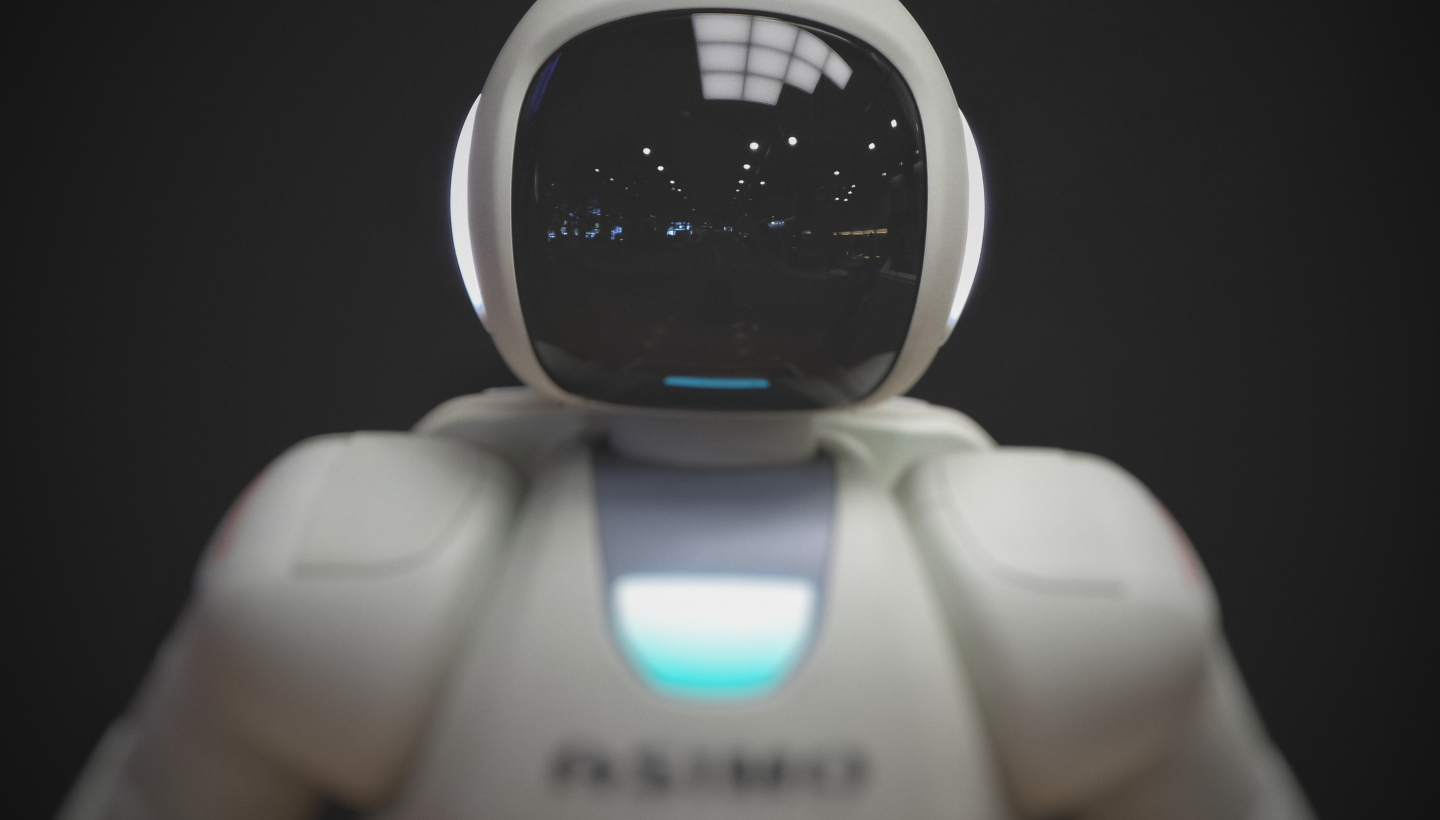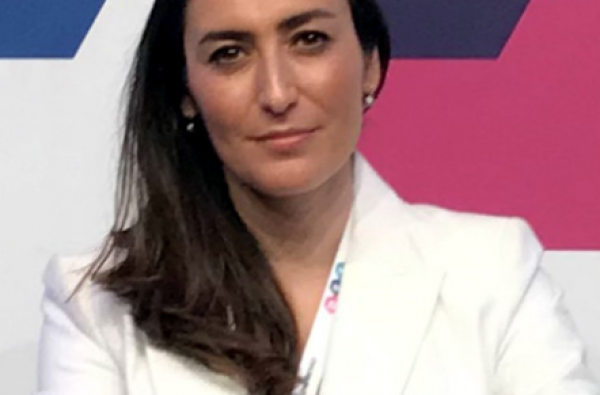The president and CEO of LG Electronics España, Jaime de Jaraíz, states that artificial intelligence is not going to replace humans, but to improve personal relationships. In his opinion, the success of companies lies in having talent capable of adapting to the new technological reality.
"Executives have a responsibility to empathize and understand well the situation of each person in the company, their interests, and problems. Only then will we be able to help them give the best of themselves. In a multicultural and diverse environment like that of LG, I have seen that the coordinated work of our professionals, guided by passion, results in success," says Jaime de Jaraíz, president and CEO of LG Electronics Iberia.
After 13 years in the company, the manager has seen the richness that brings diversity and talent to business objectives. He, as the only non-South Korean president of one of the company's subsidiaries in the world, is a clear example of this philosophy.
With more than 70 years of history, LG has manufactured many of the technological devices found in homes across the globe. So Jaraíz's long trajectory in the company has not only witnessed the different waves of innovation, but has also allowed him to live LG's own digitization process. A process that, for him, represents "the natural transformation of companies in their objective to operate more efficiently and effectively".
Artificial intelligence (AI) services in the cloud are one of the 10 technologies with the greatest capacity to change the world in 2018 according to the latest list of MIT Technology Review. IA is transforming many sectors and since LG they are making it reach our homes as well. Why do they give so much importance to this technology?
At LG we understand that innovation has to serve to offer a better life to people, and this is reflected in our motto Life's Good, Innovation for a better life. Artificial intelligence is an evolution, a technological leap, but its ultimate meaning must remain constant, in our opinion; and it is none other than to make people's lives even better.
When the market was still researching future developments, LG had already presented products that incorporated clear benefits for the consumer and that were the result of the application of artificial intelligence. This is the case of our domestic air conditioning systems, thanks to the deep learning, which learns from the uses and habits of users to anticipate their preferences even before they get home. Another example is our robotic vacuum cleaners, LG Hombots, capable of learning patterns and anticipating decisions, which were certified as having an information processing capacity similar to that of the brain of a six-year-old child.
All of this innovation makes sense, for LG, if it contributes to making people's lives better and easier.
How do you think we will benefit from artificial intelligence in the coming years?
Artificial intelligence is likely to become a commodity in our lives. We will experience the great leap with the arrival of 5G, which will allow a multitude of AI devices to anticipate needs and decisions for which human interaction was traditionally needed. A multitude of tasks that now require effort will be natural: it will not be necessary to preselect the exact temperature for each room in the house, nor will it be necessary to choose the most suitable washing program for the type of garment and the weight of the laundry. Technology will do it for us, and in this way, people will be able to recover valuable time for interlocution and personal relationships. In this context, human contact will grow exponentially.
It is up to us. If all of us in the industry assume the ethical commitment to make this technological leap well, the result will be a much more humane society, and much more enriching personal relationships. LG is already concentrating its efforts on achieving this ethical technological evolution.
In the application of real artificial intelligence, there is a key element, and that is the voice control of any device and its functionalities. If we use the example of televisions, we find a kind of hub in the home that will be connected to other devices, and that will allow its control through voice. We find ourselves again with a clear benefit of this technological evolution, which, for LG, is none other than to improve people's lives, exempting us from tasks and decisions that previously required our concentration and effort. Machines must serve us to recover time, which we will be able to use to enrich our human interactions.
What role does corporate culture play in the incorporation of technologies such as artificial intelligence or the Internet of Things (IoT) in the company?
They are complementary and the second must support the first, but not replace it. The element of success in companies is always the human factor, people. Human interaction and relationships cannot be replaced by artificial intelligence solutions. Its role is to improve decision-making, streamline implementations and improve effectiveness. But if we reduce the discussion to a mere question of data or robots, we are excluding the indispensable factor of the richness of personal relationships.
In LG we work to continue contributing to a technological evolution with meaning and in benefit of people; a race towards digitalization and efficiency with an ultimate objective greater than the merely statistical one. Our company is a clear example of how the internal technological transformation has resulted in even stronger and unique professionals and corporate values, motivators, and drivers of our success as a group.
What do you think should be the role of a CEO in a company in full digital transformation?
CEOs are responsible for finding and offering a practical sense to the digitization of our corporations, to show the way within the organization and to lead it to the ultimate goal. There have been moments in our recent history that have left clear examples of risky decisions or that lost focus; this is the case of the dotcoms in the year 2000, when many leaders developed online services dragged by the momentum, but far from the practicality of business. Then all that collapsed.
Digitization will make sense depending on the objective of each business, and it is one more tool to bring a business to a good port. It is essential that each CEO has a clear understanding and transmits the nature and objective of his or her business; therefore, he or she must know how to renounce digitization if it is not strategic for his or her goals.

How has LG benefited from digitization internally?
Both as a company and as individuals, we are infinitely more productive and efficient than we were 13 years ago. We are fully multitasking professionals. From a personal point of view, technology has allowed me to have a real-time vision, with data and certainty, of the state of this company at each moment. This information has allowed me to make more accurate and faster decisions, in many crucial moments for the business. When a company starts its digitization process or begins to incorporate artificial intelligence solutions, it immediately checks that it is more efficient. From today's perspective and looking back, we are aware that many decisions in the past did not have as much information as possible. However, we now have professionals who research, compile, analyze, and share data that supports much more accurate decisions with a greater likelihood of success. The difference is that current decisions have more technology in the process.
It is likely that before many companies achieved success by chance, with a great business idea but with deficient internal processes. They had a lack of competitors in their favour. However, today no company can barely survive if its internal processes are not mature.
To work better, it will become increasingly necessary for employees to be digital. How are LG workers transforming themselves? Is the fight for talent much greater in the technological arena?
If people are the engine of any company, talent is the necessary gear. LG is the company that is thanks to the talent and passion of its professionals. All these people have known how to adapt and develop in very different environments to those we had 10 years ago. The talent is essentially the same, but its ability to adapt to today's digital needs makes it much more valuable to the organization.
Whatever the business model, each company needs talent to be able to sell its product or service, to be able to have an efficient administration, to generate notoriety of its product. The only thing that makes the difference is that the current talent must have adapted to a different digital environment.
In addition to digitization, sustainability is becoming increasingly important in this new environment. As a manufacturer of electronics, how are you driving innovation linked to sustainability?
There is no future without sustainability. For many years, LG has had sustainability and energy efficiency, durability and safety of its products at the core of its business strategy. We are essentially an electronics company, and we believe and work so that the energy that feeds our devices comes from sustainable sources. And that the product itself is also sustainable and responsible for the environment.
How do we do it? Taking the entire life cycle of the product to the highest possible level of efficiency, from its design, production, distribution, use and recycling. Some would be surprised to hear us say that LG is against programmed obsolescence. And it's absolutely true; so much so, that we manufacture products guaranteed for more than 20 years of useful life. We believe in offering consumers the most durable devices on the market, convinced that the product that pollutes the least is the one that lasts the longest.
In addition, they have made a strong commitment to electric cars.
We can proudly say that LG is the number one manufacturer of batteries for electric cars, and of course we also manufacture all kinds of components. Not in vain, 70 % of the components of General Motors' [Chevrolet] Volt are from LG.
We design and manufacture engines, driving aids, braking systems... always in collaboration with business partners, as indispensable partners for their success in the market.
A few months ago LG launched the Smart Green Challenge to help reduce CO2 emissions, save electricity and water and contribute to recycling. 400 employees participated in the reforestation of trees in an area devastated by fires in Portugal in 2017 as part of this initiative. What other actions are you taking to contribute to this ambitious goal?
LG is already leading a movement that seeks to sensitize and mobilize citizens to help reforest Spain and plant 47 million trees themselves each year. This challenge is entirely attainable if it has the support of public administrations and if a specific day is defined, such as Mother's Day today. It is also essential to involve parents, who find in this gesture support for the environment and an example for their children. If we manage to get it up and running, our country, its flora and fauna will be completely different in a few years' time. Helping to alleviate the effects of climate change begins with the individual commitment of each person.
By Editors of the MIT Technology Review in Spanish



